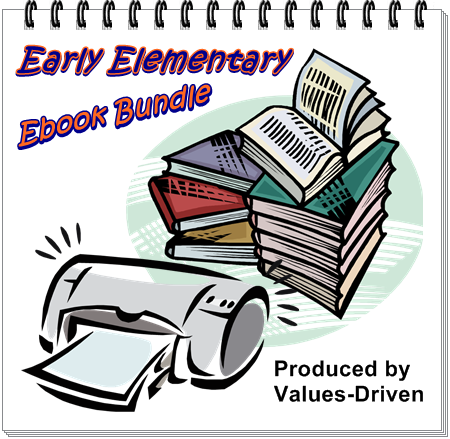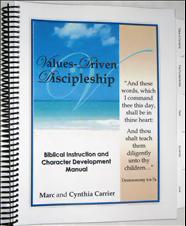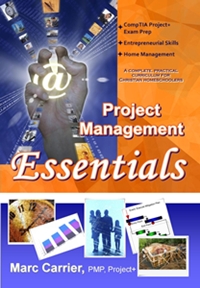Tips on choosing the best homeschool resources for your family
by Cynthia Carrier
After doing my Home Sweet Home: Creating a Joyful Home Atmosphere series last year, I was chatting with some of the ladies and asked them what other topics might be of interest to them. One woman mentioned homeschool curriculum, which sparked quite a discussion.
I was semi-amused, since those who know us well know that curriculum isn’t something that’s high on our homeschool priority list. Which is not to say that we don’t incorporate various curricula into our academic routines, but we have clearly defined objectives for their use. And, curriculum choice is part of a much larger overall picture, so it’s obviously not that simple to just recommend something to those who ask.
 However, this is a pressing question for many homeschoolers who either don’t know what’s out there, or feel overwhelmed by the options and don’t know what will work best for their family. And let’s face it, curriculum is a big investment and no one wants to throw their money away. So let’s break the process of curriculum selection down into baby steps so you can figure out for yourself what may work best for you, rather than trust in a recommendation from someone else about what worked well for them.
However, this is a pressing question for many homeschoolers who either don’t know what’s out there, or feel overwhelmed by the options and don’t know what will work best for their family. And let’s face it, curriculum is a big investment and no one wants to throw their money away. So let’s break the process of curriculum selection down into baby steps so you can figure out for yourself what may work best for you, rather than trust in a recommendation from someone else about what worked well for them.

Establishing a vision for your homeschool before you even get to the question of “what to use” for curriculum is vital. If you aren’t driving toward a goal, you will get distracted by many non-essentials along the way and you may end up feeling overwhelmed or uncertain. Without an articulated vision, how do you know which “curricula” will, indeed, fulfill your objectives for home education? How can you effectively evaluate your teaching, and your children’s learning, if you haven’t established clear outcomes?
Our vision for homeschooling is focused on following Jesus; virtually everything we do revolves around this goal of discipleship. Even as we pursue academic learning, we do so with a vision to use that knowledge and the character that is produced through academic study for the glory of God. Others may not share this vision, which is why it would be futile for me just to recommend a particular “curriculum.” Your curriculum choice should lend itself to the fulfillment of your family vision and the reasons why you homeschool.
Figuring out your educational philosophy is also a key step before considering curriculum. In my Elementary Education coursework, I took a class called “Philosophy of Education,” and it was very informative. If you poke around online, you’ll find much on the topic of educational philosophy; you may be familiar with Classical education or Charlotte Mason, as well as Montessori, Un-schooling, Eclectic, and other approaches. Some theories of education (of which I have learned to be wary) incorporate humanistic or psychological underpinnings. You and I may differ on our educational philosophy, but the important thing is that you have identified yours.
Developing a philosophy of education causes us to consider not only how children best learn, but what our overall goals are for education, both for the individual and for society. (Public school programs often address long-range social and economic goals, as much as simply dissemination of knowledge, for example.) What is the role of a teacher? How does technology impact education and what role should it play? What are the underlying values of education? What worldview do you want your children to embrace? These are just a few of the questions that you might consider as you develop your educational philosophy. Your answers shape both how and why you teach and will impact what you do on a more practical level.
Your philosophy of education will drive your choice of educational methods, which is why jumping to the question of choosing curriculum is like putting the cart before the horse. For example, if you believe that children learn best by doing and want to incorporate a hands-on approach, you will probably be careful in your selection of textbooks, or even avoid them when possible. On the other hand, if you believe that education is a vehicle through which children develop self-discipline, you may choose a more rigorous self-learning curriculum or incorporate some methods of Classical education.
Determining your methods is next in order, now that you have an organized vision and an understanding of your educational philosophy. How will you achieve your overall goals? This is where the question of curriculum may come in. However, as you evaluate your choices, you need to consider many things, such as:
- How do you typically teach?
- How do your children best learn?
- What are the specific issues, if any, that may impact the educational process (advanced abilities—“giftedness”—disabilities, emotional issues, health concerns, etc.)?
- What may be the unintended effects of certain educational choices, and how might you address those risks? (For example, will extra-curricular activities negatively impact family cohesion? What about the use of technology?)
In addition to curriculum, your particular homeschooling method may also incorporate co-ops, correspondence or community college courses, and other extra-curricular classes; apprenticeships; life skills development; service opportunities; and so on.
Putting it all Together
As you go through the process of visioning, exploring your educational philosophy, and selecting methods that are in line with those, remember that communication is key. Husband and wife should discuss these matters at length and arrive at a consensus. Older children should be given some input into what they will be doing for school. (Mom and Dad may have veto power, but children often know their learning styles better than their parents. Likewise, they have ideas about “what they want to be when they grow up,” and academic learning that leads to the fulfillment of their personal goals will give them ownership in the process.)
Prayer is also a vital component. There have been many instances when I have thought that something would work well for our family but, instead of rushing into buying or using something new, I talked it over with my husband and then committed it to prayer. After waiting on the Lord, another alternative surfaced or I found out how I could better use what I already had. Or, when finances have been a hindrance, those have often been worked out as well, through prayer and patience.
Now some practical (though perhaps over-simplified) examples:
If you believe that children learn best in a traditional classroom environment, you will likely try to re-create that environment within the home. You may decide to align your objectives to state academic standards. Extra-curricular activities could be very important to you. You may, as a result, embrace a more “textbook” approach to learning and your choice of curriculum will reflect this.
On the other hand, if you espouse an “unschooling” philosophy of education, you will permit your children more freedom to choose what and how they learn. You may be a more relaxed parent in general, allowing your children to determine their own food choices, times for waking and sleeping, how they will contribute to household chores, and so on.
Personally, our discipleship focus to home education means that we constantly read, discuss, and encourage one another with the Scriptures. “Teachable moments” for character development usually take precedence over academic assignments, although we make every effort not to sacrifice one for the other. We incorporate opportunities for missions and service-related projects when possible. We value family relationships, because the family is a microcosm of the Body of Christ. We want to provide our children with a solid academic framework so that, upon graduation from homeschool, they will be well-equipped to do whatever it is that God wants them to do. As a result, our choice of curriculum varies, depending on the temperament, ability, and interests of each child. However, we consistently emphasize a progressive language arts development and sequential arithmetic learning as a basis for further academic success and life preparation. One book that I have found immensely helpful in regard to developing our grade-level learning objectives is “Home Learning Year by Year,” by Rebecca Rupp.
 Once you have some ideas and direction, be sure to do your research! Looking at a publisher’s Web site is only helpful insofar as it effectively describes the product and offers samples so that you can assess how it will suit your needs. There are Yahoo! groups (such as A Homeschool Review, for example) and other forums that may help you to get others’ input on various curricula. If you visit your favorite Internet search engine and type in “homeschool curriculum review” or “[specific curriculum] review,” you should find some additional feedback. However, these opinions are subjective as well, so you should know what questions to ask and how to evaluate the feedback you receive in light of your personal convictions and circumstances. Prayer is likewise a vital component of this process, as wisdom is required to sift through all of the available information.
Once you have some ideas and direction, be sure to do your research! Looking at a publisher’s Web site is only helpful insofar as it effectively describes the product and offers samples so that you can assess how it will suit your needs. There are Yahoo! groups (such as A Homeschool Review, for example) and other forums that may help you to get others’ input on various curricula. If you visit your favorite Internet search engine and type in “homeschool curriculum review” or “[specific curriculum] review,” you should find some additional feedback. However, these opinions are subjective as well, so you should know what questions to ask and how to evaluate the feedback you receive in light of your personal convictions and circumstances. Prayer is likewise a vital component of this process, as wisdom is required to sift through all of the available information.
Once you’ve narrowed down your curriculum choices, try to borrow the curriculum and use it for a time to see how well it works for you. (Our local library has many Saxon Math and other textbooks that can’t be taken out but can be used at the library. This is a good option for a test-drive. Or, ask around and see if you can borrow from homeschooling friends, at least for a while.) Attending your local homeschool convention to peruse curriculum is also a good way to get a feel for what each program offers and whether or not it will suit your needs.
And of course, the term “curriculum” is pretty broad. It doesn’t necessarily mean you’re tied down to a particular textbook or program. Maybe you’ll use an eclectic mix of living books, educational movies, online resources, and workbooks to fulfill your educational objectives for some (or all) subjects. If it fits your educational philosophy, contributes to the fulfillment of your family’s vision, and suits your teaching/learning styles, then by all means, do it!
Conclusion
Before you decide to ditch what you’re doing because it “just isn’t working,” before you buy yet another set of books that you never get around to using—take some time to identify and articulate the vision and educational philosophy you have for homeschooling in your family. It will be unique to you, and as a result, your homeschooling methods and materials will be equally unique. Resist the impulse to compare yourself to others and to think that you should be doing something different or “more.” It is our hope that in all things, you will be committed to serving and glorifying God—and home education is just one small part of how we accomplish that goal as a family.

Related resources from Values-Driven:
 Early Elementary Ebook Bundle— Low cost, multi-subject public domain texts, formatted and ready-to-print.
Early Elementary Ebook Bundle— Low cost, multi-subject public domain texts, formatted and ready-to-print.
 Values-Driven Discipleship— Biblical instruction and character training manual that helps you focus on these priorities in your day-to-day routines. Available in spiral-bound or ebook, and on sale if you purchase it bundled with The Values-Driven Family.
Values-Driven Discipleship— Biblical instruction and character training manual that helps you focus on these priorities in your day-to-day routines. Available in spiral-bound or ebook, and on sale if you purchase it bundled with The Values-Driven Family.
 Project Management Essentials— A complete training course for homeschooled teens and their families; teaches management strategies that will help you to be more effective and productive in managing any type of project, from entrepreneurial and business ventures to missions trips, weddings, home management, and everything in between.
Project Management Essentials— A complete training course for homeschooled teens and their families; teaches management strategies that will help you to be more effective and productive in managing any type of project, from entrepreneurial and business ventures to missions trips, weddings, home management, and everything in between.

Cynthia Carrier is the homeschooling mom of eight children and author of several books. She has been a popular speaker at homeschool conventions and other events.
The focus of Marc and Cindy’s “Values-Driven” ministry is to encourage and equip Christian families to make the most of every opportunity: that is, to serve God, participate in fulfilling the Great Commission, and raise children who love and serve the Lord. For more information about their resources, for fresh inspiration on your family journey, or to find practical helps-including many FREE DOWNLOADS-visit http://www.ValuesDrivenFamily.com.

